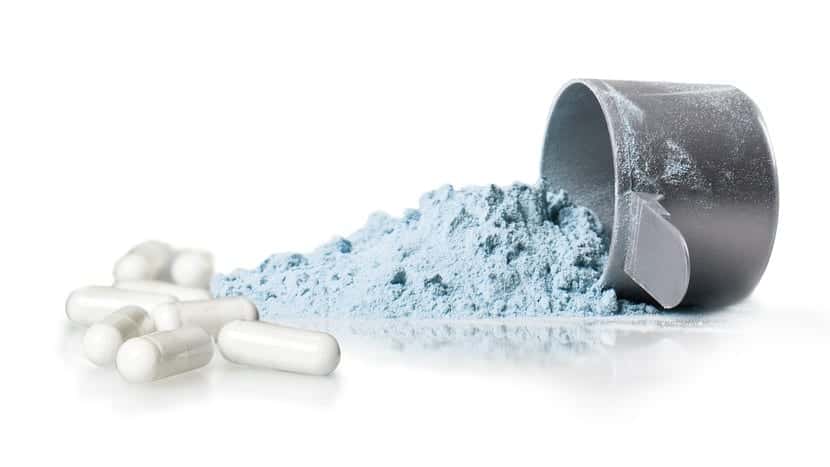Is Citrulline a good supplement or not?
If you use pre-workout supplements, you have probably already seen this name on a label somewhere, as it is increasingly common to use this amino acid in these types of products.
But do you know what the Citrulline and what does she do?
Even more important?it works?
This and much more is what you will find out in this article.
What is Citrulline?
It is an amino acid, but it is rare to find it in food, and the one with the greatest presence is fruit, more specifically watermelon.
When ingested, much of it is converted into Arginine in the kidneys, that is, you take Citrulline and it turns into Arginine.
Wouldn’t supplementation with Arginine make more sense then?
No, because Citrulline is more effective at increasing Arginine levels in the body than Arginine supplementation. (4)
In addition to the increase in Arginine levels, it also increases Ornithine levels.
What are the benefits of increasing levels of these two amino acids?

Benefits of Citrulline
- Reduced fatigue and increased performance (1) (2) (7) (8) (9)
- Increased nitric oxide levels (3)
- Reduction of post-workout pain (2)
- Possible increase in Growth Hormone levels (3)
These are the four main benefits for those who train.
It has been shown in several studies that it not only reduces fatigue, but also increases performance, thus leading to better training.
In addition to better training, by increasing nitric oxide levels, you get a greater pump during training and vascularization, and also possible benefits in nutrient absorption and better blood circulation.
The famous pain after leg training (and beyond) is reduced with this type of supplementation, and when combined with exercise, Citrulline supplementation increased Growth Hormone levels compared to those who did not use this supplement after training.
Growth Hormone plays several important roles, such as tissue repair.
There are several benefits, but the biggest highlight is undoubtedly the reduction of fatigue and improved performance, and that is where this supplement has more studies demonstrating its effectiveness.
But after all, does it increase muscle mass? Does it burn fat?
As you may have noticed the benefits, it cannot be said that Citrulline increases muscle mass or reduces fat directly.
But, it can be said that it does so indirectly.
By reducing fatigue and improving performance, it will allow you to have more intense workouts, and if that is your goal, longer ones. This way you will be able to get more out of your training, and consequently have better results.
In addition to the effect on training, the reduction in post-workout pain, and the possible increase in growth hormone levels, contributes to muscle recovery and you will be able to recover more quickly from the training you do.
Finally, who doesn't like a bigger pump during training?
L-Citrulline or Citrulline Malate?
The two most common forms of this amino acid for sale are L-Citrulline and Citrulline Malate.
Both are Citrulline, with just a small difference.
In the case of Citrulline Malate, it is combined with Malic Acid, which in theory should lead to better results, especially in terms of energy.
Unfortunately, there are no studies comparing the two versions to prove whether there really are differences in practice, but most performance studies use the Citrulline Malate version, and it seems to be the safest bet to obtain the best results.
The dose is also slightly different for both versions.
How to take Citrulline?
Here lies the big problem with supplementing this amino acid in pre-workout products.
Most supplements use doses that are too low.
The recommended dose to benefit from training is 6g to 8g in the form of Citrulline Malate, about an hour before training.
In the case of L-Citrulline, the dose is lower, and should be between 3g and 5g.
Most supplements use doses much lower than this, and as such, it is difficult to obtain the benefits of this amino acid.
Also read the article Create your own add-on.

Where to buy?
If you are looking for Citrulline Malate, this option from Myprotein is a good bet.
And so that you don't run out of choices, you also have the Biotech supplement here Citrulline Malate.
So is it worth it?
Citrulline has been gaining popularity, and with good reason.
Studies show that it is effective in reducing fatigue during training and improving performance, which is ideal in a pre-workout supplement.
Furthermore, it also has other interesting benefits for those looking for good results in the gym.
Is it a mandatory supplement?
No.
But it is a very interesting supplement if you are looking for something to improve your training and achieve better results.
References
(1) http://www.ncbi.nlm.nih.gov/pubmed/12145119
(two) http://www.ncbi.nlm.nih.gov/pubmed/20386132
(3) http://www.ncbi.nlm.nih.gov/pubmed/20499249
(4) http://www.ncbi.nlm.nih.gov/pubmed/17693747
(5) http://www.ncbi.nlm.nih.gov/pubmed/17901164
(6) http://www.ncbi.nlm.nih.gov/pubmed/20499249
(7) http://www.ncbi.nlm.nih.gov/pubmed/25226311
(8) http://www.ncbi.nlm.nih.gov/pubmed/26900386
(9) http://www.ncbi.nlm.nih.gov/pubmed/26023227





Good afternoon. This is the first time I'm taking citrulline malate. I am preparing three races: Vimeiro trail (30k) on 24Sept, Arruda Trail (25k) on 8Oct and Trail Serra da Lousã (50k) on 21Oct. Should I take 3 tablets daily now? Should I only take it on training and race days, 60′ before each session? In other words, should I take it daily regardless of training/tests, or only on physical activity days?
Thanks
Hi Francisco, just take it on training and race days.
Pay attention to the dose, as 3 tablets in the case of Citrulline Malate will be insufficient.